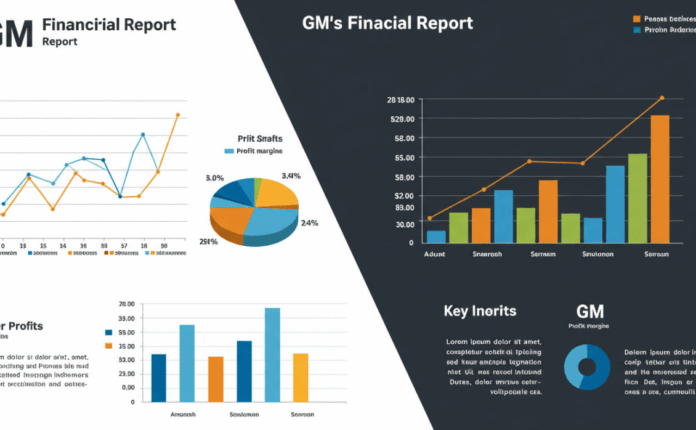In today’s fast-paced business landscape, scaling a company is both an exciting opportunity and a daunting challenge. Growth is the lifeblood of any ambitious enterprise, but scaling too quickly or without a clear strategy can lead to inefficiencies, financial strain, or even failure. Sustainable business growth requires a delicate balance of innovation, operational efficiency, and long-term vision. In this article, we’ll explore actionable strategies for scaling smart, ensuring your business thrives without compromising its core values or operational stability. Whether you’re a startup founder or a seasoned entrepreneur, these insights will help you navigate the complexities of growth with confidence.
Why Sustainable Scaling Matters
Scaling a business isn’t just about increasing revenue or expanding your customer base—it’s about building a foundation that supports long-term success. Sustainable scaling focuses on growth that aligns with your company’s mission, resources, and market demands. Unlike rapid, unchecked expansion, sustainable scaling prioritizes efficiency, adaptability, and resilience. For instance, a tech startup might be tempted to pour resources into aggressive marketing to boost user numbers, but without a robust infrastructure, this could lead to poor user experiences and high churn rates. By scaling smart, businesses can avoid common pitfalls like cash flow shortages, employee burnout, or diluted brand identity.
The Risks of Uncontrolled Growth
Rapid growth might seem like a dream come true, but it can quickly turn into a nightmare without proper planning. Take the example of a retail e-commerce platform that scales its inventory to meet surging demand. If supply chain logistics aren’t optimized, the company could face stockouts, delayed shipments, or excess inventory, all of which erode customer trust and profitability. Uncontrolled growth can also strain internal teams, leading to miscommunication, missed deadlines, and declining morale. Sustainable scaling mitigates these risks by ensuring that every step forward is supported by a solid operational framework.
The Benefits of Strategic Scaling
When done right, scaling smart unlocks a host of benefits. It allows businesses to expand their market presence while maintaining high-quality products or services. A well-scaled business can attract top talent, secure investor confidence, and build a loyal customer base. For example, a SaaS company that gradually rolls out new features while gathering user feedback can refine its product iteratively, ensuring it meets market needs without overextending resources. Strategic scaling also fosters resilience, enabling businesses to weather economic downturns or competitive pressures with greater ease.
Key Strategies for Sustainable Business Growth
To scale effectively, businesses must adopt strategies that balance ambition with practicality. Below, we outline four proven approaches to help you grow sustainably, complete with real-world insights and actionable tips.

Optimize Your Operations
Before scaling, ensure your core operations are efficient and scalable. This means streamlining processes, automating repetitive tasks, and investing in the right technology. For instance, a logistics company might implement an AI-driven inventory management system to reduce waste and improve delivery times. By optimizing operations, you create a foundation that can handle increased demand without compromising quality. Conduct regular audits to identify bottlenecks, and involve your team in process improvements to foster a culture of continuous enhancement.
Leverage Technology for Efficiency
Technology is a game-changer for sustainable scaling. Cloud-based tools like CRM platforms (e.g., Salesforce) or project management software (e.g., Asana) can streamline workflows and improve collaboration. For tech businesses, adopting scalable infrastructure—such as cloud hosting services like AWS or Google Cloud—ensures your systems can handle spikes in traffic or data without crashing. When choosing tools, prioritize those that integrate seamlessly with your existing systems and offer scalability to accommodate future growth.
Focus on Customer-Centric Growth
Your customers are the heartbeat of your business, and scaling sustainably means keeping their needs at the forefront. Use data analytics to understand customer behavior, preferences, and pain points. For example, an e-commerce brand might analyze purchase patterns to identify high-demand products and tailor its inventory accordingly. Engaging with customers through personalized marketing, responsive support, and loyalty programs builds trust and encourages repeat business, which is critical for long-term growth.
Build a Feedback Loop
A strong feedback loop is essential for customer-centric scaling. Encourage reviews, conduct surveys, and monitor social media to gauge customer sentiment. For instance, a software company might use beta testing to gather user feedback before launching a new feature. Incorporate this feedback into your product development and customer service strategies to ensure your offerings evolve with your audience’s needs. This not only improves customer satisfaction but also reduces the risk of costly missteps during scaling.
Invest in Your Team
Your employees are your greatest asset when scaling. A motivated, skilled team can drive innovation and maintain operational excellence. Invest in training programs to upskill your workforce and prepare them for new challenges. For example, a growing marketing agency might offer workshops on the latest digital advertising trends to keep its team competitive. Additionally, foster a positive company culture that values collaboration and adaptability to retain top talent during periods of growth.
Delegate and Empower
As your business scales, delegation becomes critical. Empower your team by assigning clear roles and responsibilities, and avoid micromanaging. For instance, a tech startup might appoint a dedicatedmon, and the company culture. This approach ensures sustainable growth without overwhelming your team or resources.
Measuring Success in Scaling
To ensure your scaling efforts are sustainable, track key performance indicators (KPIs) that align with your goals. Metrics like customer retention rates, revenue growth, operational efficiency, and employee satisfaction provide a holistic view of your progress. Use tools like Google Analytics for customer insights or financial software like QuickBooks to monitor cash flow. Regularly review these metrics to identify areas for improvement and adjust your strategies accordingly.
Tools for Tracking Growth
Investing in the right tools can make tracking easier and more accurate. For tech businesses, platforms like Mixpanel or Amplitude offer deep insights into user behavior, while financial tools like Xero help manage budgets and forecasts. By leveraging data, you can make informed decisions that support sustainable growth without overextending your resources.
FAQs
What is sustainable business growth?
Sustainable business growth refers to expanding a company’s operations, revenue, or market presence in a way that aligns with its long-term goals and resources. It prioritizes efficiency, customer satisfaction, and operational stability to avoid risks like financial strain or poor service quality.
How can technology help with scaling?
Technology streamlines operations, improves customer experiences, and supports data-driven decisions. Tools like cloud hosting, CRM systems, and analytics platforms enable businesses to handle increased demand, automate tasks, and gain insights into performance.
Why is customer feedback important for scaling?
Customer feedback helps businesses understand market needs, refine products, and improve services. By incorporating feedback through surveys, reviews, or beta testing, companies can scale in a customer-centric way, ensuring loyalty and satisfaction.
How do I know if my business is ready to scale?
Your business is ready to scale if it has a solid operational foundation, consistent revenue growth, and a clear understanding of customer demand. Conduct audits to identify inefficiencies and ensure your team and systems can handle increased scale.




n5tv8o
cpkod9